
April 8
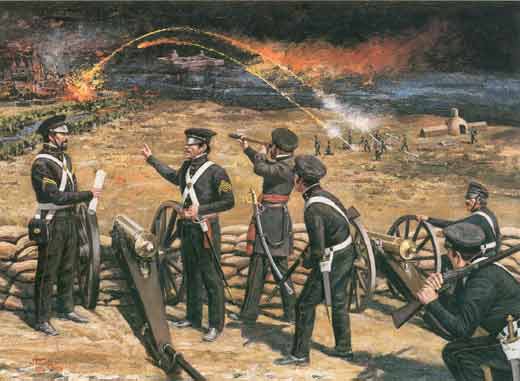
1847 Wunderwaffen: Captain Robert E. Lee fires off 30 rockets during the battle for Telegraph Hill. After the completion of the war against Mexico, the US rocketeer battalion is disbanded, and their rockets put in storage.
[See: Wunderwaffen: Hitler's Deception and the History of Rocketry.]1847 Birth: Emil Kirdorf: industrialist tycoon from the Ruhr region of Germany who will be one of the first prominent German entrepreneurs to join the Nazis; will obtain financial support for Adolf Hitler. Co-founder of the Rhenish-Westphalian Coal Syndicate and other large concerns, Kirdof will be considered a ruthless exploiter and foe of the labor unions.
1874 Birth: Stanislaw Taczak: Polish general. Until 8 January 1919, temporary commander-in-chief of the Great Poland Uprising (1918-1919). After the Invasion of Poland (1939) he was imprisoned in Oflag VII-A Murnau POW camp in Germany.
1875 Birth: Albert I, King of the Belgians:
The younger son of Philip, count of Flanders (brother of King Leopold II), Albert succeeded to the throne in 1909, Leopold’s son and Albert’s father and older brother having died earlier. Before World War I Albert worked to strengthen the army, gaining passage in 1913 of a military conscription bill. He reaffirmed Belgian neutrality to France and Germany in the summer of 1914 and rejected the German emperor William II’s ultimatum of Aug. 2, 1914, demanding free passage of German troops across Belgian territory. A German invasion followed two days later.
Albert assumed leadership of the Belgian army at the outset of the war but was forced to retreat beyond the Yser River after the fall of Antwerp in October 1914. German troops then occupied the entire country except for the southwestern districts of Flanders. During the whole of the war Albert remained with his troops, making continual visits to the front-line trenches from his headquarters at De Panne on the Belgian coast. When the general Allied offensive of September 1918 was undertaken, he commanded the Franco-Belgian northern army group, which captured Ostend and Brugge and forced the passage of the Lys River. Following the Armistice, Albert appealed to the Allies to abolish Belgian neutrality, formalized by European treaties in 1839, and gained passage in Parliament of universal male suffrage. For the next 15 years he guided the nation’s rebuilding effort, which included public-works construction and redevelopment of industries destroyed by the German occupation. In 1926 he helped introduce a new monetary system. Albert was killed by a fall while rock climbing in 1934. (Britannica.com)
1904 Britain and France sign Entente Cordiale:
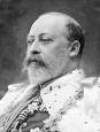
On this day in 1904, with war in Europe a decade away, Britain and France sign an agreement, later known as the Entente Cordiale, resolving long-standing colonial disputes in North Africa and establishing a diplomatic understanding between the two countries.
Formally entitled a Declaration between the United Kingdom and France Respecting Egypt and Morocco, the Entente Cordiale of April 1904 amounted more than anything to a declaration of friendship between these two great European powers. By its terms, France promised not to challenge British control over Egypt; for its part, Britain recognized France's right, as a Power whose dominions are conterminous for a great distance with those of Morocco to act in that country to preserve order and to provide assistance to bring about whatever reforms in the government, economy or military it deemed necessary.
Through the Entente Cordiale, Britain and France established the beginnings of an alliance, promising, in the concluding words of the agreement, to afford to one another their diplomatic support, in order to obtain the execution of the clauses of the present Declaration regarding Egypt and Morocco. The agreement stopped short, however, of requiring the two nations to provide military support to each other; this aspect of the alliance would come later.
A motivating factor behind the agreement was undoubtedly France's desire to protect itself against possible aggression from its old rival, Germany, who had steadily been growing stronger in the years since its victory in the Franco-Prussian War of 1870-71 and now possessed the most powerful land army in the world. Britain was also eager to keep Germany in check, especially in light of a revamped, ambitious German naval program, which—if successful—threatened to challenge Britain's clear dominance at sea.
The German government, anxious over this agreement, decided to test its limits, sending Kaiser Wilhelm II to Morocco in March 1905 to declare his support for the sultan—a clear challenge to France's influence in that country, which had been sanctioned by the Entente Cordiale. This bid to shake the Anglo-French alliance failed, as Britain sided with France; an international conference that convened at Algeciras, Spain, the following year also recognized France's claims in the region.
The clash between Germany and the new allies became known as the First Moroccan Crisis—a second occurred in the summer of 1911, when both France and Germany sent forces to Morocco—and resulted in a tightening and solidifying of the Entente Cordiale, as Britain and France, aiming to confront German aggression, moved from mere friendship to an informal military alliance and, later, to talks and an agreement with France's ally, Russia. By 1912, then, two powerful and hostile blocs had been formed in Europe, with France, Britain and Russia on one side, and an increasingly isolated Germany—with relatively lukewarm support from Austria-Hungary and Italy—on the other. Two years later, this volatile situation would erupt into the First World War. (History.com)
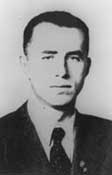
1912 Birth: Alois Brunner: Austrian Nazi war criminal who was Adolf Eichmann's assistant. He was a trouble-shooter for the Schutzstaffel and held the rank of SS-Hauptsturmfhrer when he organized deportations to Nazi concentration camps from Vichy France and Slovakia. Through his role in these deportations, he is considered culpable for the mass murder of tens of thousands of Jews. He was personally sent by Adolf Eichmann in 1944 to Slovakia to oversee the deportation of Jews from Slovakia. From early 1944 until March 1945, 11,532 Jews were transported to Auschwitz. After the war he is said to have been employed by the CIA because he was fiercely anti-Soviet. He is then alleged to have fled to Syria, possibly in 1954, and hired as a "government advisor" with some suggesting he was advising the Syrian dictatorship on torture and repression techniques. While unsuccessfully hunted by the late Simon Wiesenthal, he is believed to live in Damascus, Syria, under the alias "Dr. Georg Fischer". Germany and other countries have unsuccessfully requested his extradition.
1916 World War I: Gefreiter Adolf Hitler endures trench warfare in Flanders (Artois) with 3 Company, 16 Reserve Infantry Regiment [List Regiment]. [For further details, Click here.]
1917 World War I: Various:
Austria-Hungary—an ally of Germany—severs diplomatic relations with the United States.
List Regiment: Gefreiter Adolf Hitler's 16 Reserve Infantry Regiment, 3 Company, fortify trenches near Arras. [For further details, Click here.]
1918 World War I: Various:
Actors Douglas Fairbanks and Charlie Chaplin sell war bonds on the streets of New York, New York's financial district.
Gefreiter Adolf Hitler's 16th RIR constructs fortified works in difficult defensive positions on an active front with German assault regiments near Fountaine (Montdidier). [For further details, Click here.]
1922 Death: General Georg A.S. von Falkenhayn: former chief of the German general staff:
Falkenhayn's cautious nature appeared to make him well-suited to the realities of trench warfare, unlike many of his contemporaries. He was inclined to consider defensive rather than offensive operations . . . a sound strategy but one ill-suited to the Eastern Front. His approach led him to reject an ambitious plan to capture the entire Russian army championed by Paul von Hindenburg and Erich Ludendorff. Falkenhayn however believed that the real war was being fought on the other front. [For further details, Click here.]
1926 Birth: Juergen Moltmann: German theologian. He took his entrance exam to proceed with his education, but went to war instead as an Air Force auxiliary in the German army. "The 'iron rations' in the way of reading matter which I took with me into the miseries of war were Goethe's poems and the works of Nietzsche." He was actually drafted into military service in 1944, when he became a soldier in the German army. Ordered to the Reichswald, a Belgian forest at the front lines, he surrendered in 1945 in the dark to the first British soldier he met. For the next few years (1945-48), he was confined as a prisoner of war and moved from camp to camp. He was first confined in Belgium. In the camp at Belgium, the prisoners were given little to do. Moltmann and his fellow prisoners were tormented by "memories and gnawing thoughts" . . . . Moltmann claimed to have lost all hope and confidence in the German culture because of Auschwitz and Buchenwald (concentration camps where Jews and others the Nazis opposed had been imprisoned and killed). They also glimpsed photographs nailed up confrontationally in their huts, bare photographs of Buchenwald and Bergen-Belsen concentration camp. Moltmann claimed his remorse was so great, he often felt he would have rather died along with many of his comrades than live to face what their nation had done.
1933 Various:
German Chancellor Adolf Hitler speaks in Berlin:
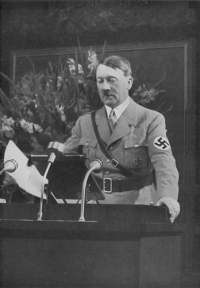
When our opponents say: 'It is easy for you: you are a dictator'- we answer them, 'No, gentlemen, you are wrong; there is no single dictator, but ten thousand, each in his own place.' And even the highest authority in the hierarchy has itself only one wish, never to transgress against the Supreme authority to which it, too, is responsible. We have in our Movement developed this loyalty in following the leader, this blind obedience of which all the others know nothing and which gave to us the power to surmount everything. For fourteen years we were assailed; the attempt was made to bend and break us by cunning, chicanery, and violence, by malice and terror, by everything imaginable. But this instrument of blind obedience remained unbroken, remained steadfast. All we endured was but tests from which we emerged stronger than ever ...
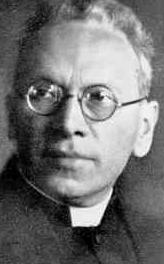
Church and Reich: Monsignor Kaas secretly meets Papen in Munich. Together they travel on to Rome. Kaas will never again set foot on German soil. (THP)
Zionism: Zionist leaders, including Chaim Weizmann and Chaim Arlosoroff, meet with Arab leaders from Transjordan at the King David Hotel in Jerusalem.
1935 FDR signs Emergency Relief Appropriation Act:
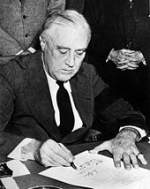
President Franklin D. Roosevelt authorizes almost $5 million to implement work-relief programs on this day in 1935. Hoping to lift the country out of the crippling Great Depression, Congress allowed the president to use the funds at his discretion. The act was unprecedented and remains the largest system of public-assistance relief programs in the nation's history. [For further details, Click here.]
1938 Holocaust: Austria The Rothschild Bank is "Aryanized" and taken over by the Austrian Credit Institute.
[See: Austria: The Other Germany.]1939 World War II: Albania One day after invading Albania, Italian troops take the capital, Tirana, and King Zog flees to Greece.
1940 World War II: Various:
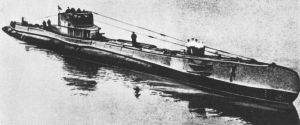
War at Sea: The Polish submarine Orzel sinks the Rio de Janeiro with German troops bound for the attack on Norway. [For further details, Click here.]
Norway: Britain informs Norway that it intends to intercept German ships in Norwegian waters. London fails to reveal to Oslo that it has ordered the Royal Navy to mine Norwegian territorial waters. (THP)
1942 World War II: Various:
Eastern Front: The Soviets open a rail link to the besieged city of Leningrad.
Holocaust: Gassing: The Polish underground alerts London of gassing of Jews in Chelmno by the Nazis. (THP)
1944 World War II: Russians attack Germans in drive to expel them from Crimea:
On this day in 1944, Russian forces led by Marshal Fedor Tolbukhin attack the German army in an attempt to win back Crimea, in the southern Ukraine, occupied by the Axis power. The attack would result in the breaking of German defensive lines in just four days, eventually sending the Germans retreating.
Crimea was the territorial plaything of many great powers, from the Ottoman Turks to the Russia of Ivan III. It had declared its independence in 1918 but was occupied again by Germany in 1941. It was "liberated" by the Russians, only to find itself trapped within the greater Soviet Union. It once again declared itself an independent republic in the 1990s. (History.com)
1945 World War II: Various:

Wishful Thinking: Goebbels maintains that the Allies are in as bad a shape as Germany, and if Germany can just hold out a little longer, the enemy will collapse:
Under the fury of the enemy offensives that have been pressing down on our fronts to the west, east, and south for months, as well as the almost unceasing bombing of our German cities and provinces, some hearts are beginning to shake and tremble. Rarely in history has a brave people struggling for its life faced such terrible tests as the German people have in this war. The misery that results for us all, the never ending chain of sorrows, fears, and spiritual torture does not need to be described in detail. We know them all too well, and we are too proud to appeal to the world's pity. We are bearing a heavy fate because we are fighting for a good cause, and are called to bravely endure the battle to achieve greatness. This faith is the sure foundation that remains to us in the midst of this inferno of self destruction under which all humanity moans and weeps. That is why we cling so strongly to it, for if we lost it, we ourselves would also be lost. It may be a consolation for experienced hearts to know that this sorrow will end, as do all of earth's sorrows. The question is how that end will come. A happy outcome for us depends wholly and exclusively on ourselves. We must earn it. Just as we have done again and again in such admirable ways in the earlier stages of this terrible war, our goal must be not to lack those proven virtues of war in the final phase of this gigantic battle between peoples. The darkest hour is the one before sunrise. The stars that lent their soft light have already set, and the deepest darkness precedes the dawn. No one needs to fear that it will forget to come. The dark veil of night will suddenly fall and the sun will rise in the blood-red sky. As it is in nature, so to it is in the lives of peoples and nations, particularly during war, which is the most terrible natural event among peoples and nations. Have confidence and wait until that hour comes
Holocaust: Buchenwald: The Jewish inmates, many of whom had reached the camp from Auschwitz or Stutthof just three months before, are marched out, leaving the non-Jewish prisoners to await the arrival of the Americans. (THP)
[See: The Last Days of the Third Reich.]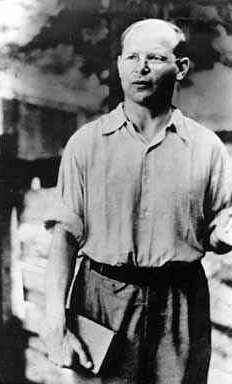
Resistance: Dietrich Bonhoeffer: German theologian and martyr, the night before he is hanged by the Nazis, declares: 'This is the end - for me the beginning' - his last recorded words. [For further details, Click here.]

1946 Nuremberg Tribunal: On day 102, Keitel is cross-examined by the prosecution:
Sir David Maxwell-Fyfe: So that it comes to this, Defendant, doesn't it—that you will go as far as this: You were present at the meeting with Hitler and Himmler. That is what you say. At that meeting Hitler said that the prisoners who were caught by the police were to remain in the hands of the police. You had a strong probability that these prisoners would be shot and with that you used this incident as a deterrent to try and prevent other prisoners of war escaping. All that you admit, as I understand your answers this morning, don't you?
Keitel: Yes, I do admit; but I have not been interrogated on this matter as to just what my position was with Hitler, and I have not testified as to that, and that I did not give this warning, but that this warning was an order of Hitler and was the cause for another severe collision between Hitler and me when the first report of shootings reached me. That is how it was.
Sir David Maxwell-Fyfe: I won't go through the details again. One other point: When did you learn of the use of cremation and the sending of cremation urns to this camp?
Keitel: This remained unknown to me.
The initial cross-examination, conducted by Rudenko, was uneven, and Biddle criticized it as 'childish cross-examination, hardly ever directed to the facts.' Fyfe, following, slashed into Keitel with relish . . . . Goering, cursing in one and the same breath the wiliness of Fyfe and the stupidity of the defense attorney's, raged at Keitel for not putting up more of a fight: 'You don't have to answer so damn directly! The question itself doesn't matter so much as the way you answer it. You can dodge around such dangerous questions and wait until they hand you one you have a good answer for and the sail into it!' Keitel shot back: 'But I can't make white out of black!' To Gilbert he said: 'I could only tell them the way things were. The only thing that is absolutely impossible for me is to sit there like a louse and lie—that is absolutely impossible.'
From the letters of Thomas Dodd:Friday was another trial day. Keitel still on the stand and he practically admitted his guilt. Late in the afternoon, General Rudenko started the cross-exam. It was fair—much better than his first effort . . . . Saturday, the court sat until noontime—Sir David examined Keitel in far, far too much detail...Today we were in court all day and Keitel is still on the stand. As you may know I crossed him up pretty well and got what amounts to a confession from him.
Nuremberg Tribunal: On day 102, Keitel's defense calls Dr Hans Heinrich Lammers, Chief of the Reich Chancellery:Lammers: The Fuehrer informed me that the Minister of War, Von Blomberg, was going to leave his position and that on that occasion he wanted to make certain other changes of personnel . . . in the High Command of the Army . . . . Subsequently, the Fuehrer gave me the order to draft a decree regarding the leadership of the Wehrmacht. I was to participate in this in collaboration with the Wehrmacht Department of the War Ministry. As a guiding principle the Fuehrer gave me the following instructions: "In the future I no longer want to have a Reich Minister for War; and in the future I no longer want a Commander-in-Chief of the Wehrmacht who stands between me as the Supreme Commander, and the Commanders-in-Chief of the branches of the Wehrmacht."
Accordingly, the decree was drafted, in which, to start with, the High Command of the Armed Forces became a military staff which was to be under the direct orders of the Fuehrer. The Fuehrer desired that there should be no independent authority here, which would stand between him and the Commanders-in-Chief of the branches of the Wehrmacht. Consequently, the then appointed Chief of the OKW, General of Artillery Keitel, had no direct power of command over the branches of the Wehrmacht. Such power of command was out of the question if only for reasons of authority.
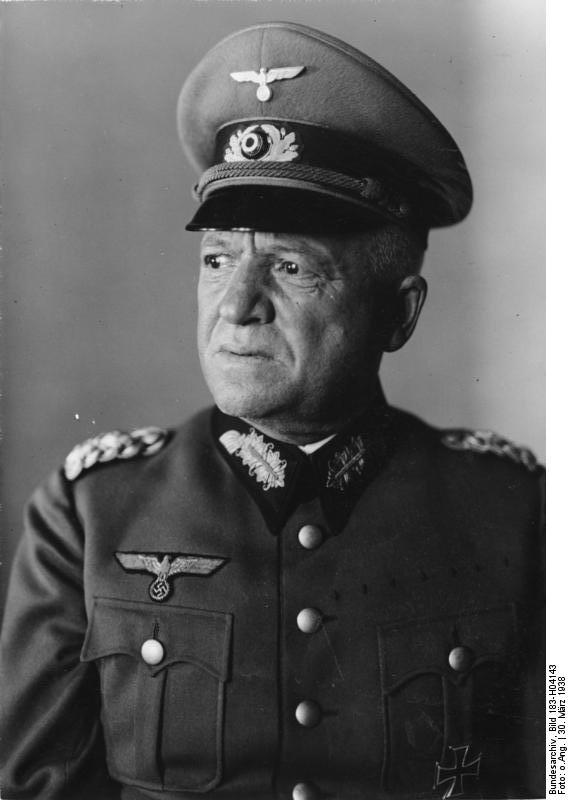
1949 Death: Wilhelm Adam: in Anspach, Bavaria. Served as a Bavarian officer in World War I with a reputation for efficiency; became a Major General in 1930; in 1933 became commander of the Munich military area; in 1935 assumed command of Berlin's new Armed Forces Academy. Not one of Hitler's favorites, the two clashed over West Wall fortifications and had numerous other disputes. Following a few months after the fall of Blomberg and Fritsch, Adams was relieved of command by Hitler and sat out the war with an unblemished reputation in Garmich, which is where he passed away.
1950 Red Scare: McCarthy publicly attacks Owen Lattimore:

Senator Joseph McCarthy labels Professor Owen Lattimore "extremely dangerous so far as the American people are concerned" in a carefully worded public speech, but stops short of calling him a Soviet spy. The speech was yet another example of McCarthy's ability to whip up damaging Red Scare hysteria with no real evidence. [For further details, Click here.]
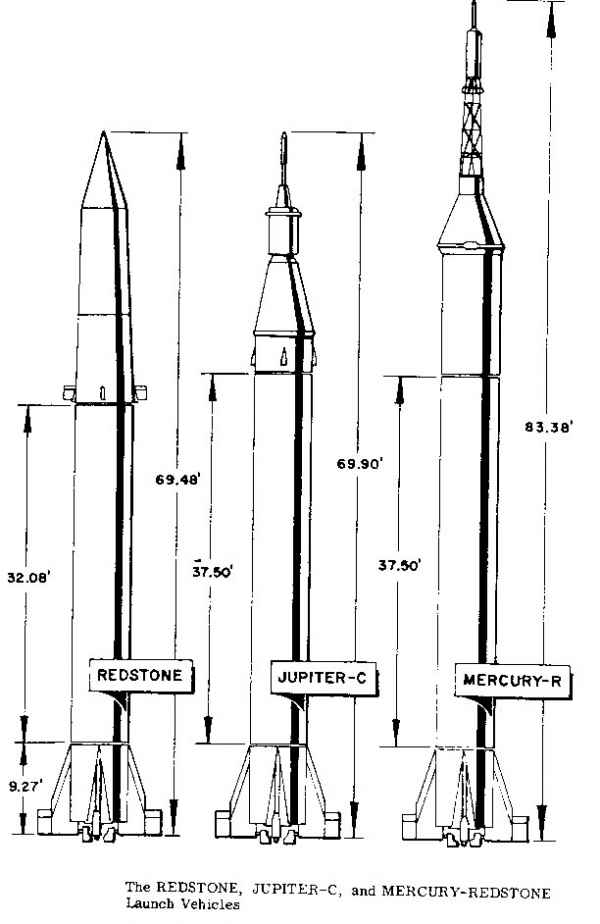
1952 Wunderwaffen: After considering and rejecting a series of names for their new ballistic missile, including "Ursa" and "Major," the von Braun Team officially settles on "Redstone." Note: Werner von Braun, Hitler's former chief rocket scientist, is now working for the US. (Piszkiewicz)
1968 East Germany: A new socialist constitution of goes into effect.
1981 Death: Omar Bradley, last 5-star US General:
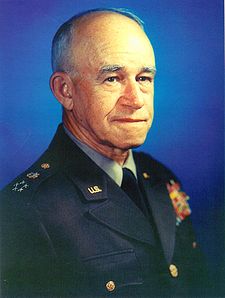
A quiet but distinguished member of a distinguished class of West Point graduates, Bradley typified a remarkable generation of Army officers. Disheartened by a perceived lack of success in 1918, he pursued his duty throughout some of the Army's most difficult years. The fact that war coincided with Bradley's own professional maturity brought him promotion as the first general officer in his class; George Marshall's confidence assured him a chance to show his mettle. There is no standard against which to compare Bradley as an army group commander. During the fighting in Europe, his calm and effective presence was important in times of crisis, as was his deft touch in handling subordinates. It is difficult, for example, to imagine Patton without Bradley, who exploited the talents of that volatile commander as well as any man could have done. Finally, it was his superb wartime record, combined with his reputation for fairness and honesty, that made him effective in what was probably his most difficult job, Chairman of the Joint Chiefs of Staff. General of the Army Omar N. Bradley died on 8 April 1981, just a few minutes after receiving an award from the National Institute of Social Sciences. He was buried in Arlington Cemetery on 14 April 1981 with full military honors, as the nation mourned the passing of this great and noble warrior.
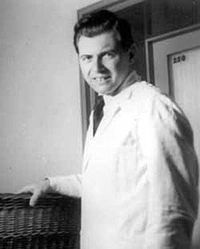
1992 Josef Mengele: After genetic fingerprinting tests, German and Israeli authorities declare that they are certain that this notorious criminal died in Brazil in 1979.
The notorious doctor of Auschwitz, Josef Mengele, has become an enigma of the twentieth century. Mengele's handsome physical appearance, fastidious dress, and calm demeanor greatly contradicted his attraction to murder and gruesome experiments. [For further details, Click here.]
Edited by Levi Bookin (Copy editor)
levi.bookin@gmail.com



Click to join 3rdReichStudies



Please note that the list-owner and the moderator are not responsible for, and do not necessarily approve of, the random ads placed on our pages by our web server. They are the unfortunate price one pays for a 'free' website.
FAIR USE NOTICE: This site may contain copyrighted material the use of which has not always been specifically authorized by the copyright owner. We are making such material available in our efforts to advance understanding of historical, political, human rights, economic, democracy, scientific, environmental, and social justice issues, etc. We believe this constitutes a 'fair use' of any such copyrighted material as provided for in section 107 of the US Copyright Law. In accordance with Title 17 U.S.C. Section 107, the material on this site is distributed without profit to those who have expressed a prior interest in receiving the included information for research and educational purposes. If you wish to use copyrighted material from this site for purposes of your own that go beyond 'fair use', you must obtain permission from the copyright owner.